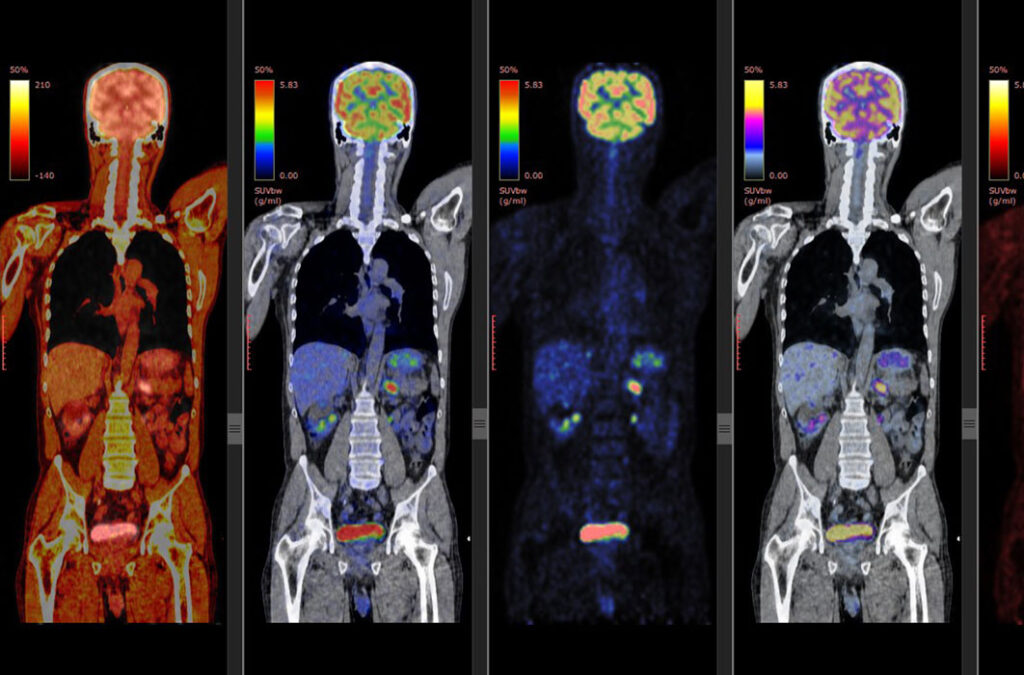PET CT Scan and its uses
PET-CT (Positron Emission Tomography-Computed Tomography) is a medical imaging technique that combines two imaging modalities: PET and CT. PET is a functional imaging technique that uses a small amount of radioactive material to visualize and measure the metabolic activity of cells in the body, while CT is a structural imaging technique that uses X-rays to produce detailed images of the body’s internal structures.

The combination of PET and CT in a single exam provides physicians with a powerful tool for the diagnosis, staging, and treatment planning of various diseases, particularly cancer. Here are some of the key importance and effects of PET-CT:
Accurate cancer diagnosis and staging: PET-CT is an essential tool for detecting and staging various types of cancer, including lung, breast, colorectal, and lymphoma. It can identify cancer at an early stage and determine the extent of its spread throughout the body.
Treatment planning: PET-CT can help physicians determine the most appropriate treatment plan for cancer patients. It provides information about the location, size, and metabolic activity of tumors, which helps doctors decide on the best course of action, such as surgery, radiation therapy, or chemotherapy.
Monitoring treatment progress: PET-CT can also be used to monitor a patient’s response to cancer treatment. It can detect changes in the size and metabolic activity of tumors, which allows doctors to adjust the treatment plan as necessary.
Detection of other diseases: PET-CT can detect other diseases, such as heart disease and neurological disorders, in addition to cancer. It can help physicians identify the underlying cause of symptoms and develop an appropriate treatment plan.
Reduced need for multiple exams: PET-CT eliminates the need for separate PET and CT scans, which reduces the patient’s exposure to radiation and the need for multiple appointments.
However, there are some potential side effects of PET-CT. The radioactive material used in PET scans may cause allergic reactions, and some patients may experience discomfort or claustrophobia during the CT scan. Additionally, PET-CT may not be appropriate for pregnant women, as the radiation exposure can potentially harm the developing fetus. Therefore, it is important to discuss any concerns with a physician before undergoing PET-CT.
For a painless CT Scan in Chennai, consider Madras Scans & Labs as your go-to destination. It is the most trusted CT Scan centre in Chennai with its exceptional and secure diagnostic services at an affordable pricing system.
Give us a quick call at 9514400800 or visit us at https://www.madrasscan.in to know more about CT Scan Scan and our attractive price package.
